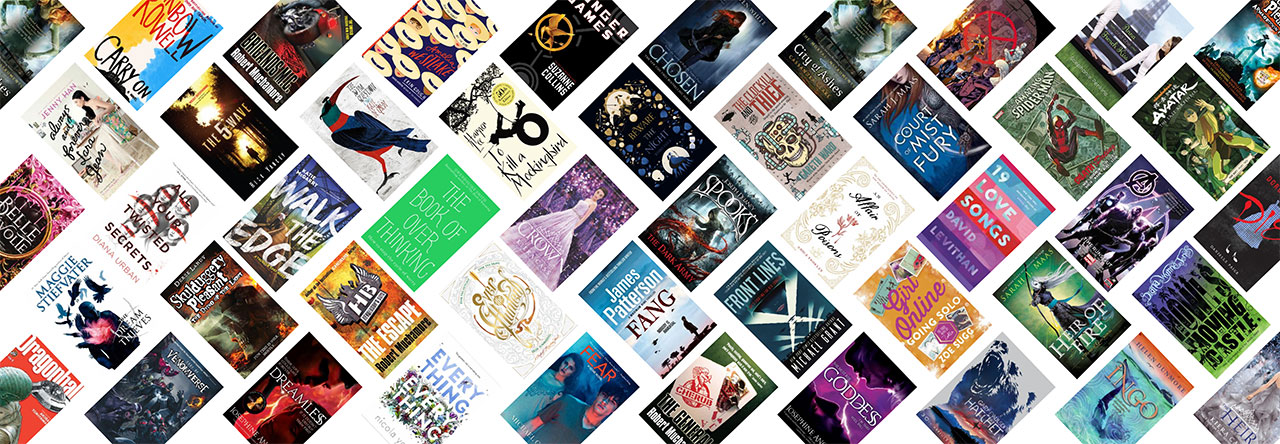 Kate de Goldi, author of The 10 pm Question (which we thought was one of the best books published last year) and Wellingtonian, kindly took some time out to answer a few questions about reading, writing, inspiration, characterisation… check out what she has to say, especially if you’re an aspiring writer; there is some good advice and useful insights in here. Many thanks to Kate for playing ball with us. We look forward to reading your next book!
Kate de Goldi, author of The 10 pm Question (which we thought was one of the best books published last year) and Wellingtonian, kindly took some time out to answer a few questions about reading, writing, inspiration, characterisation… check out what she has to say, especially if you’re an aspiring writer; there is some good advice and useful insights in here. Many thanks to Kate for playing ball with us. We look forward to reading your next book!
1. What books did you enjoy reading in high school?
I read quite a variety of books…I was – and still am – the kind of eternally hungry (and often indiscriminate) reader who needs something, anything, as long as it’s print, so I read trash as often as I read good stuff. Literal boxes full of Mills and Boons, for example… predictable, reliable, junk food. Short term pleasure, zero long-term sustenance. I read a lot of historical romances – Anya Seton, Victoria Holt, Catherine Cookson, – these were a step up from M&B, (more developed, slightly less clichéd characters, often genuinely interesting historical contexts and interesting settings, but still formulaic (I suspect the less well-written vampire fiction today fills the same need for the erotic and the comfortably dangerous)). I read crime fiction – beginning (as girls often did then) with the Queens of Crime, Dorothy L Sayers, Christie, Ngaio Marsh)… and spy thrillers by men… whatever was in the school library or around the house… I read some science-fiction, loved John Wyndham and CS Lewis.
I read and re-read a lot of children’s books, though I was in my teens – the ones on my bookcase (all the standard – and excellent – children’s writers from the 50s, 60s and 70s, American, British, Australian and some European). I read every young adult book I could get my hands on – the 70s (when I was at high school) was when the YA genre really began hitting its stride… writers like Paul Zindel, ME Kerr, Robert Cormier, John Townsend, John Christopher, Robert Westall, Jan Mark, Margaret Mahy… were all producing great stuff.
In mid-high school I began reading adult literary fiction… I started by ‘doing’ my parents’ book case… they had handsome casebound collections of Dickens and Galsworthy and I read many of those… also, Somerset Maugham, Graham Greene, Laurie Lee, EM Forster… There was a lot of history books on those shelves, too, and I read most of those – histories of the French Revolution, of the Second World War (I was obsessed with WWII), of Italy, of the Wars of the Roses, of the NZ gold rushes, biographies of Napoleon, of Louis 14th, of the English monarchs… We had the complete New Zealand Heritage (instalments of NZ history that made up several volumes… I loved those).
In the 6th form (Year 12) our English teacher dictated the class a potted history of English literature (we had to underline the significant writers as the narrative developed)… It was an entirely uninspired method of teaching, but it did provide me with a list of authors and titles and I went with that list to a very good local bookshop and began steadily buying titles… all the predictable people, Austen, Brontes, Eliot, Thackeray, Trollope, Virginia Woolf, Lawrence, Huxley… it was a decidedly Anglo-centric diet… I didn’t start reading adult American and Canadian and Australian – and, importantly New Zealand – fiction until I went to university – and that was a revelation…. High School was also when I began reading cook books and books about food and other random social histories… I bought the Penguin editions of Elizabeth David’s books in the 6th form…
2. What inspired you to write The 10 pm Question?
I always have a number of ideas (that could become stories or novels) rolling round in my head … often for years. Different ideas take precedence – rise to the surface – depending on what other thoughts, observations, incidents, chime with them… expand them as story possibilities. Like all my stories 10pm developed in that way… I had read somewhere about a woman who suffered from agoraphobia, an anxiety disorder that prevented her from leaving her house. Like most writers I have a notebook (a series of notebooks, actually) in which I write things like this that catch my attention… I wrote this down. Later, I spent some time with a young girl who’d let quite a nomadic life with her mother and siblings and was keen to stay in one place. She was a vivid and fascinating personality and I noted down some ideas around her. A little later still, my son Jack was going through an extended phase of anxiety about matters big and small – this was often comical (even to him), as well as worrying. I began thinking about a 12 year old boy… a boy who is on the cusp of adolescence, in his final year at intermediate school… a smart, funny, anxious boy, who lives in a family of strong personalities, who has a great best friend, who has a complex relationship with his mother (who never leaves the house) and who meets at school a new girl who’s had a rather different kind of life…
Those were the events, people, items, that became the initiating ingredients for the story… but I didn’t know what the story was about until I was well along the way. That’s perhaps the most interesting thing about writing, from my point of view… it’s a somewhat mysterious process of exploration… you begin with certain elements and the true story reveals itself later… or when you’ve finished.
3. The 10 pm Question has very vivid characters (for example Frankie, and the aunts). Where do your characters come from? Do they introduce themselves to you (fully formed) before you begin writing or do they evolve as you work?
Mostly the characters are fusions of people I’ve known – or more likely, characteristics of those people… a kind of mix and match of traits, habits, physical features, personal histories, vocabulary… all of which goes to make a wholly different person who develops a new and vigorous life on the page. (The three Aunties – Alma, Nellie and Teen – are an amalgam of all my aunts and great-aunts and my cousins’ aunts and great-aunts).
Sometimes characters are more or less formed when I start writing (because I’ve been thinking about them for a long time). Sometimes they evolve in certain ways depending on who you put them with, what they’re doing, what they’re thinking, what events they collide with…again, it’s a matter of exploration… the more you write, the more the writing happens… ideas, understanding of the story (and your characters) occurs – to a degree – as you’re doing it.
4. How does living in Wellington influence your writing?
My imaginative landscape has been formed – for better or worse – by Canterbury and the West Coast of the South Island. The minute a story idea forms it is connected irretrievably to somewhere in those two areas… (for instance, the book I plan to do after the one I’m working on at the moment, and which has been in my head for more than a decade, has from the minute of its inception been in a specific street in Papanui in Christchurch).
So, though I’ve been living in Wellington – and loving it – for more than a decade – stories don’t seem to rise out of its geography or particular city life. I look out the window at the Wellington harbour heads when I’m writing… I love the shaved hills, the clear light, the constant sound of the sea. I love the more ragged nature of Wellington gardens and suburbs, the unexpectedness geography of a city built on hills. But as soon as I write something my inner eye settles on the Canterbury Plains or the nor’west sky or the volcanic Port Hills, or flat, tree-lined, manicured suburban streets…
On a more practical level, living in Wellington has exposed me to many different aspects of literary culture – notably teaching creative writing, reading, thinking about, reviewing other writers’ work – all that has undoubtedly had a big influence on my development as a writer.
5. As well as teenagers, adults have really enjoyed reading The 10 pm Question. When you write do you have a particular audience in mind?
I don’t think of a particular kind of audience – that is, not a bunch of people, or an age group, or cultural group, or a nationality. I very rarely think about anyone… but perhaps somewhere at the back of my mind is the notion of a kind of reader, (and that reader could be any age – 9 to 90)… a reader who is likely to laugh at the same kinds of things I do, or be moved or intrigued by similar things… I find the only way to proceed when writing is on the basis of what interests you… inevitably someone else will be interested too…
6. Do you have another novel in the pipeline? What are you working on at the moment?
I’m working on another novel. The central character is a 14 year old girl. It’s set in 1945 in a specific street on Cashmere Hills in Christchurch.
7. What advice would you give to up and coming writers?
Read everything you can get your hands on… all sorts of genres and voices, and forms. Read poetry. Read plays. Watch films. Listen to stories. Listen to lyrics. Listen to people. Look at artwork. Think about language and story shape. Keep notebooks or journals. Live in the world in a noticing way. Look and listen. Write down what you see and hear. Write something every day, doesn’t matter for how long. Get a job. Get lots of different jobs. Read some more. Read and read. Keep reading.




Comments are closed.